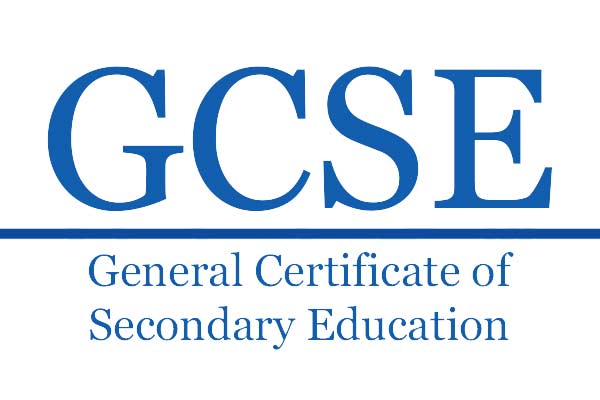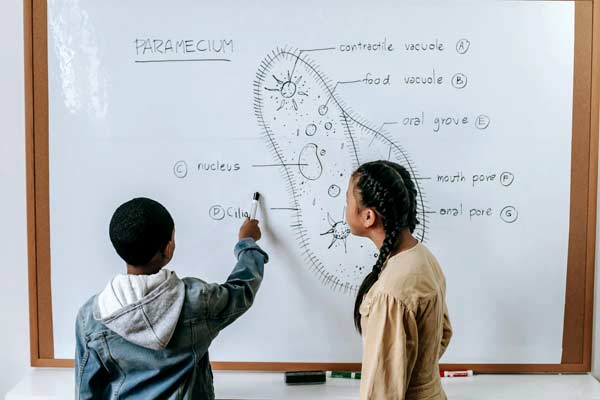Is History GCSE Hard? A Clear Answer with Expert Insight
Studying GCSE History can be challenging as it demands students to build diverse skills like critical thinking, analysis, and evaluation.
The difficulty arises for many students because of the extensive content and intricate topics they must grasp.
However, whether or not history GCSE is hard depends on various factors, including the student’s prior knowledge, study habits, and interest in the subject.
Students often need help with the history GCSE due to the extensive content they must grasp.
The syllabus encompasses diverse subjects such as political, social, and economic history, delving into the study of events, notable figures, and societies throughout history.
Students must have a good memory and recall information quickly and accurately. In addition, they must be able to analyze and evaluate the information they have learned and apply it to different contexts.
Despite the challenges, many students find History GCSE a rewarding subject that helps them develop essential skills and knowledge.
By studying history, students gain a deeper understanding of the world around them and learn to appreciate the complexities of human societies and cultures.
They also develop valuable critical thinking and analytical skills in many fields, including law, politics, and journalism.
Understanding GCSE History
GCSE History is a challenging subject that requires a significant amount of knowledge and understanding. It covers various content, including political, social, and economic history from different periods and regions.
Students who take this subject need to have a good grasp of historical concepts, events, and figures and the ability to analyze and evaluate historical evidence critically.
🌟 Hey Students! 🚀 Ready for the ultimate experience? Join us on Studentsinside.com's Facebook, YouTube, WhatsApp, and LinkedIn. Click now for tips, fun, and success vibes! 🌈✨ #StudentLife #JoinUs
Students need to develop their historical knowledge and understanding to excel in GCSE History. This involves learning about historical periods, key events, and significant individuals.
They also need to understand the broader historical context of these events and how they relate to each other. This requires a lot of reading, research, and note-taking.
Another essential aspect of GCSE History is analyzing and evaluating historical evidence.
Students need to be able to assess the reliability and validity of different sources, including primary and secondary sources. They also need to be able to use evidence to support their arguments and draw conclusions.
Exam Structure and Content
Exam Boards
The GCSE History exam is offered by three exam boards in the UK – AQA, Edexcel, and OCR. All three exam boards provide the same qualifications, but the content and structure of the exam may vary slightly depending on the board.
Key Dates and Periods
The GCSE History exam covers many historical events and periods. The exam typically consists of two papers, each lasting 1 hour and 45 minutes.
The first paper covers the Period Study and Thematic Study, while the second covers the British Depth Study and the Historical Environment Study.
The Period Study covers a specific historical period, such as Medicine through Time or The American West. The Thematic Study covers themes across different periods, such as Power and the People or Migration to Britain.
The British Depth Study covers a specific period in British history, such as Elizabethan England or The Norman Conquest.
The Historical Environment Study focuses on a specific historical site or location, such as The British Sector of the Western Front or Whitechapel c1870-c1900.
Students are expected to demonstrate their knowledge and understanding of historical events and themes and their ability to analyze and evaluate historical sources.
The exam may include various question types, such as multiple-choice, short-answer, and essay questions.
Revision Techniques and Resources
Effective Revision Techniques
When revising for GCSE History, it is vital to use effective revision techniques to make the most of your study time. Here are some techniques that can help:
- Set clear revision goals: Get started on your revision by setting clear goals. List the GCSE subjects you’re studying and the grades you want to achieve. This will keep you focused and motivated.
- Create a revision timetable: A study schedule can assist you in efficiently organizing your time, making sure you review all the necessary topics.
- Use active revision techniques: Active revision techniques, such as creating mind maps, summarizing notes, and teaching others, can help you retain information better than passive techniques like reading and highlighting.
- Practice past papers: Past papers are essential for perfecting your GCSE History exam technique. They help improve your writing structure as well as your subject knowledge.
- Take breaks: Remember to give yourself regular breaks to stay focused and prevent burnout. Schedule a 10-15 minute break every hour to recharge.
Useful Resources
In addition to effective revision techniques, several valuable resources can aid your GCSE History revision. Here are some of them:
- Revision notes: Creating revision notes can help you summarize and retain information. Make sure your notes are clear and concise.
- Textbooks: Textbooks can provide a comprehensive overview of the topics you must revise. Use them to supplement your class notes.
- Online resources: Several online tools are accessible for GCSE History revision, including BBC Bitesize, Quizlet, and Think Student. These platforms provide helpful resources like revision guides, flashcards, and practice quizzes.
- Flashcards: Flashcards are a great way to memorize critical dates, events, and people. Use them to test your knowledge and practice recall.
Difficulty Level of GCSE History
Based on student polls and academic particulars, GCSE History is considered one of the hardest GCSE subjects.
Students find it challenging due to the extensive content coverage and the requirement to analyze and interpret historical events.
To achieve a good grade in GCSE History, students must demonstrate a deep understanding of the subject matter and the ability to write coherently and persuasively.
The subject requires students to learn and remember significant information, including dates, events, and historical figures.
Furthermore, students must be able to analyze historical sources critically, identify bias, and evaluate the reliability of evidence.
The subject also demands strong essay writing skills, including the ability to structure arguments logically and present evidence convincingly.
Achieving a good grade in GCSE History is challenging but possible. The key to success is to start early, stay organized, and consistently revise.
Students who take the time to understand the subject matter and practice their writing skills are more likely to achieve higher grades.
Comparison with Other GCSE Subjects
When it comes to difficulty, GCSE History is often considered to be one of the more challenging subjects. However, how does it compare to other GCSE subjects?
Sciences and Maths
Subjects such as Biology, Chemistry, and Physics are often considered to be some of the more challenging GCSE subjects due to the complexity of the material.
Maths is also known to be a difficult subject for many students. However, these subjects offer a certain level of predictability, with clear formulas and concepts that can be memorized and applied to problems.
In comparison, history requires different skills, such as critical thinking, analysis, and interpretation. While there is a certain level of necessary memorization in history, other focuses are on the subject.
Therefore, students struggling with rote memorization may find history more manageable.
English and Modern Foreign Languages
English Language and English Literature are deemed challenging GCSE subjects, significantly emphasizing essay writing and analysis.
Likewise, Modern Foreign Languages like French, German, and Spanish demand a strong command of grammar, vocabulary, and pronunciation.
In comparison, history requires a different set of skills, such as analyzing and interpreting primary and secondary sources and constructing arguments based on evidence.
While there is some overlap between English and Modern Foreign Languages regarding critical thinking and analysis, history offers a unique perspective on the past and how it has shaped our world today.
Career Opportunities with GCSE History
Studying history at the GCSE level can open up various career opportunities for students. While some may pursue further education in history, others may find that their GCSE in history provides them with the skills and knowledge needed for various career paths.
Becoming an archaeologist is a popular career choice for those with a GCSE in history. Archaeologists study human history and prehistory by excavating and analyzing artifacts, structures, and other physical remains.
A GCSE in history provides a solid foundation for this career path, as it teaches students about historical events and the context in which they occurred.
Becoming an archivist is a potential career option for individuals who have completed a GCSE in history. Archivists play a crucial role in safeguarding and arranging historical documents and artifacts.
A GCSE in history can provide students with the knowledge and skills needed to work in this field, as it teaches them about historical research methods and the importance of preserving historical records.
If you’ve got a GCSE in history, consider journalism. Journalists dig into and share what’s happening now, and a history background helps with research skills and understanding the historical backdrop, making you better at the job.
For those interested in politics, a GCSE in history can be an excellent foundation for a career.
Understanding historical events and their impact on society is essential for anyone working in politics, and a GCSE in history can provide students with this knowledge.
A GCSE in history gives students a solid foundation for advancing into higher education in history or related fields. Numerous colleges and universities mandate applicants to possess a GCSE in history.
This qualification serves as a valuable stepping stone for those aspiring to delve deeper into the study of history.








